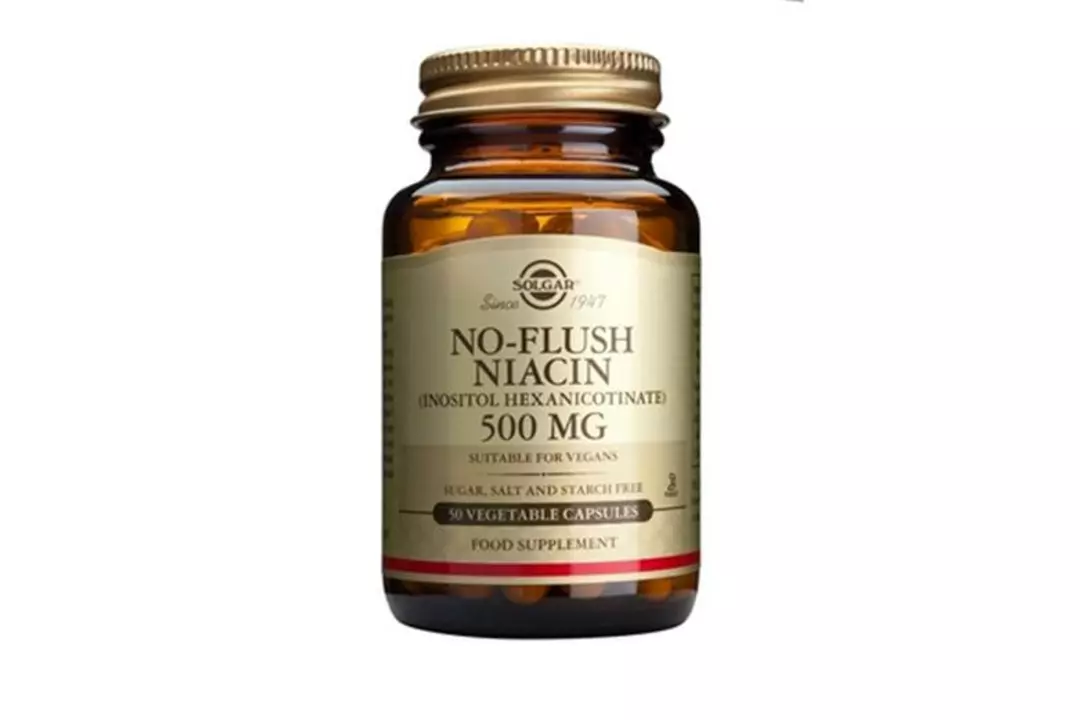
Introduction to Eicosapentaenoic Acid (EPA)
Today, I want to talk to you about a secret ingredient that can do wonders for your overall health and well-being: Eicosapentaenoic acid, or EPA. You might not have heard of it before, but it's a crucial component found in fish oils and other omega-3 rich sources. EPA is a type of polyunsaturated fatty acid that our bodies cannot produce on their own, so it's essential that we obtain it through our diet.
In this article, I will share with you seven vital sections that reveal the various benefits of EPA, and how incorporating it into your lifestyle could bring about significant improvements to your health. So, let's dive in and explore the amazing world of Eicosapentaenoic acid!
EPA and Its Role in Reducing Inflammation
One of the primary benefits of EPA is its ability to help reduce inflammation in our bodies. Chronic inflammation has been linked to various health issues, including heart disease, arthritis, and even some cancers. EPA works by converting into compounds called eicosanoids, which have potent anti-inflammatory properties.
By incorporating EPA-rich foods or supplements into your diet, you may experience a decrease in inflammation-related pain and discomfort. Additionally, reducing inflammation can improve your overall health by lowering your risk of developing chronic diseases related to inflammation. So, don't underestimate the power of this secret ingredient when it comes to combating inflammation!
Boosting Your Cardiovascular Health with EPA
Another amazing benefit of EPA is its ability to improve your cardiovascular health. Research has shown that EPA can help lower triglyceride levels, reduce blood clotting, and even decrease your risk of heart attack and stroke. These benefits are particularly essential for individuals with existing heart conditions or those at risk of developing heart diseases.
By regularly consuming EPA-rich foods, such as fatty fish or fish oil supplements, you may improve your cardiovascular health and reduce the likelihood of experiencing heart-related issues in the future. And who wouldn't want a healthier heart?
Enhancing Your Mood and Mental Health
Did you know that EPA can also positively impact your mood and mental health? Studies have shown that individuals with higher EPA levels in their blood tend to have a lower risk of developing depression, anxiety, and other mood disorders. EPA is believed to help regulate mood by reducing inflammation in the brain and promoting the production of essential neurotransmitters, such as serotonin and dopamine.
By adding more EPA to your diet, you may find yourself feeling happier, more balanced, and better equipped to cope with life's challenges. So, don't forget to prioritize your mental health by incorporating this secret ingredient into your daily routine!
Supporting Healthy Brain Function and Development
Another fascinating aspect of EPA is its role in supporting healthy brain function and development. Our brains are highly reliant on essential fatty acids like EPA for optimal performance. EPA helps maintain the structure and function of brain cells, and it's particularly crucial for brain development during pregnancy and early childhood.
Ensuring that you consume enough EPA during these critical periods can help promote healthy brain growth and development in your child. Additionally, maintaining adequate EPA levels throughout your life may also help protect against age-related cognitive decline and other brain-related issues. So, give your brain the nourishment it needs by incorporating EPA into your diet!
Improving Eye Health and Vision
Did you know that EPA can also benefit your eye health and vision? EPA is essential for maintaining the health of your retina, the light-sensitive layer at the back of your eye responsible for sending visual signals to your brain. By supporting the function of retinal cells, EPA can help to preserve your vision and reduce your risk of developing age-related eye issues, such as macular degeneration.
By incorporating more EPA-rich foods into your diet, you may be able to protect your eyesight and maintain good eye health for years to come. So, don't forget to prioritize your eye health along with the rest of your body!
Enhancing Your Skin and Hair Health
Last but not least, EPA can also work wonders for your skin and hair health! The anti-inflammatory properties of EPA can help reduce skin redness, irritation, and inflammation, leading to a healthier and more radiant complexion. Additionally, EPA may also improve your hair's health by promoting the production of essential proteins and reducing inflammation in the hair follicles.
By adding more EPA to your diet, you may notice improvements in your skin's texture, tone, and overall appearance, as well as healthier, shinier, and more lustrous hair. So, don't underestimate the power of this secret ingredient when it comes to enhancing your outer beauty!
Conclusion
In conclusion, Eicosapentaenoic acid is a secret ingredient with numerous health benefits that you should not overlook. By incorporating EPA-rich foods and supplements into your diet, you may experience improvements in inflammation, cardiovascular health, mood, brain function, eye health, and even your skin and hair. So, don't wait any longer – start reaping the benefits of this amazing nutrient today and boost your overall health and well-being!
13 Comments
Write a comment
More Articles

How to Safely Dispose of Medications in Household Trash: Step-by-Step Guide
Learn how to safely dispose of expired or unused medications in household trash using FDA and EPA guidelines. Follow these 5 simple steps to protect your family and the environment.

The connection between obesity and the need for penis surgery
As a blogger, I've discovered an interesting connection between obesity and the need for penis surgery. It turns out that excessive fat in the pubic area can lead to a buried or hidden penis, making it difficult for men to maintain proper hygiene and sexual function. This often requires surgical intervention to correct the issue. Furthermore, obesity contributes to other health issues like diabetes and heart disease, which can negatively impact sexual health. It's essential to maintain a healthy weight not only for overall well-being, but also for a fulfilling and healthy sex life.


Lori Johnson
June 13, 2023 AT 16:36I tried EPA for three months and my joint pain vanished. Like, overnight. My yoga instructor asked if I got a new hip. I just smiled and ate another salmon fillet.